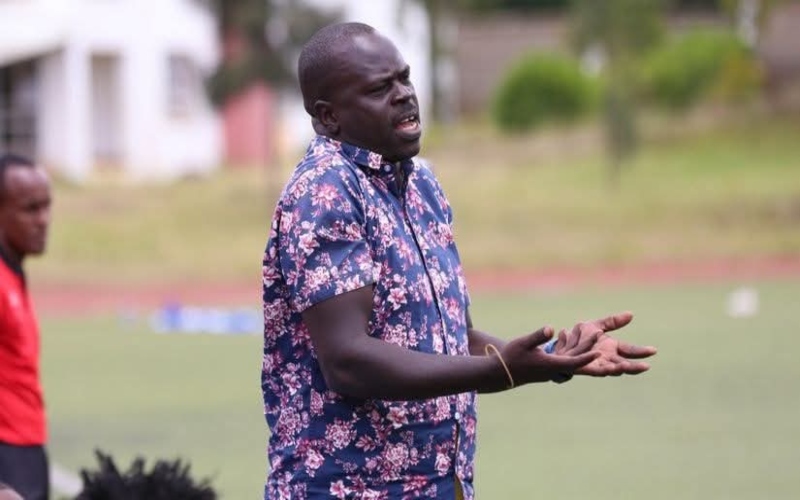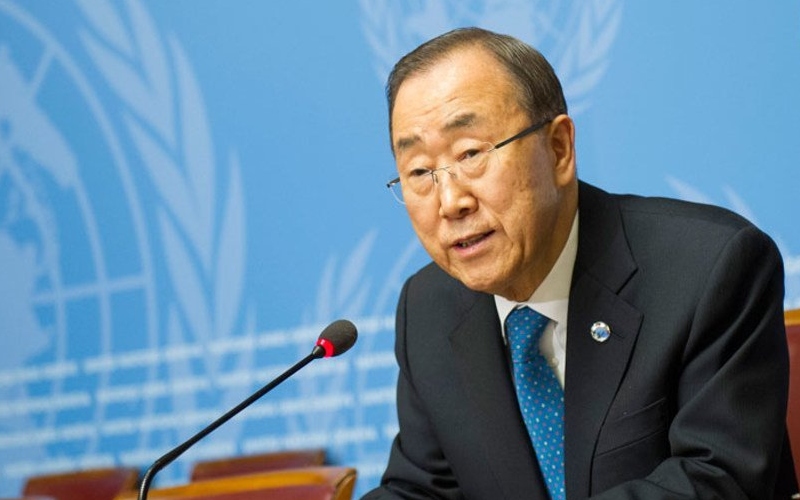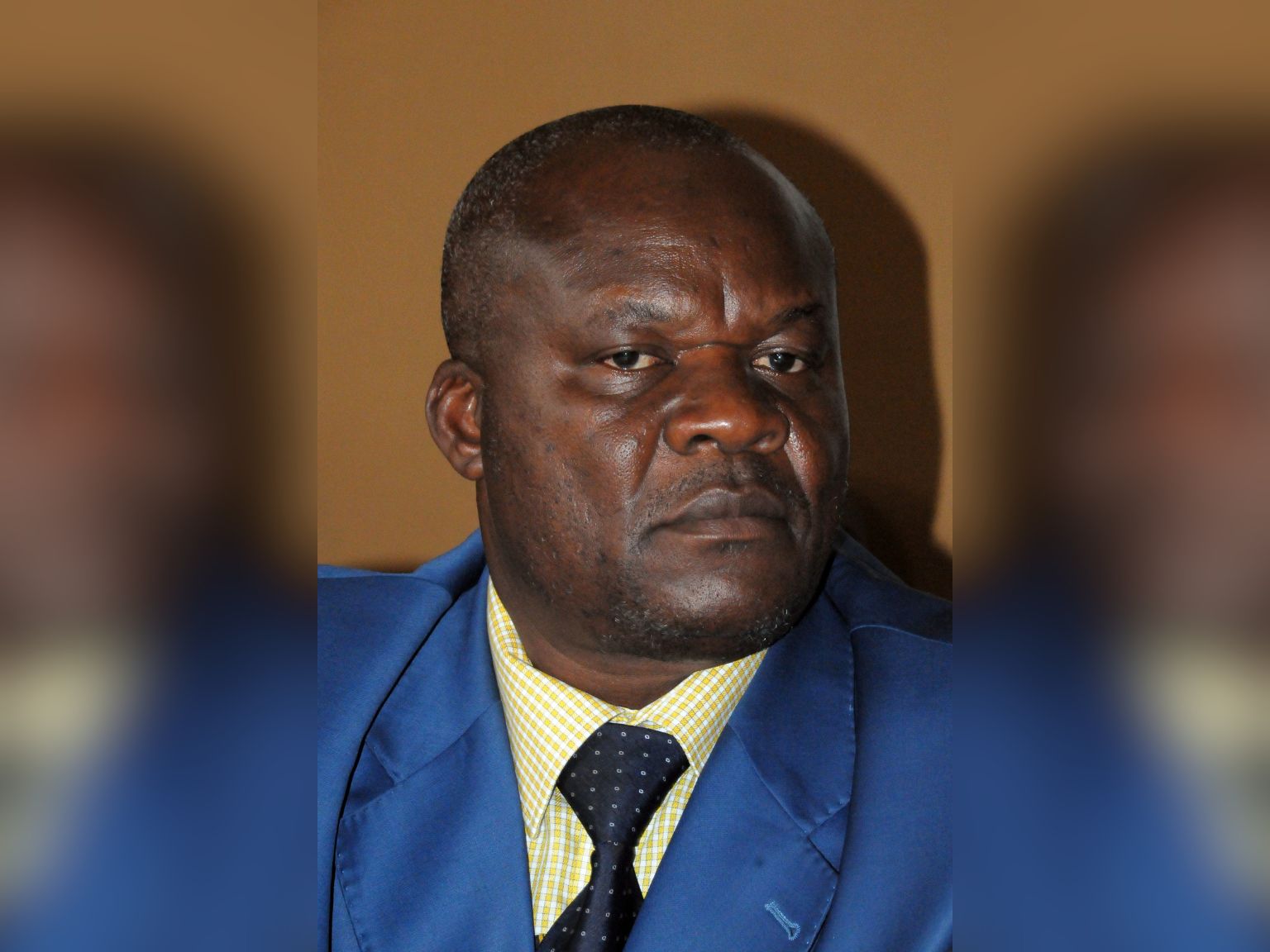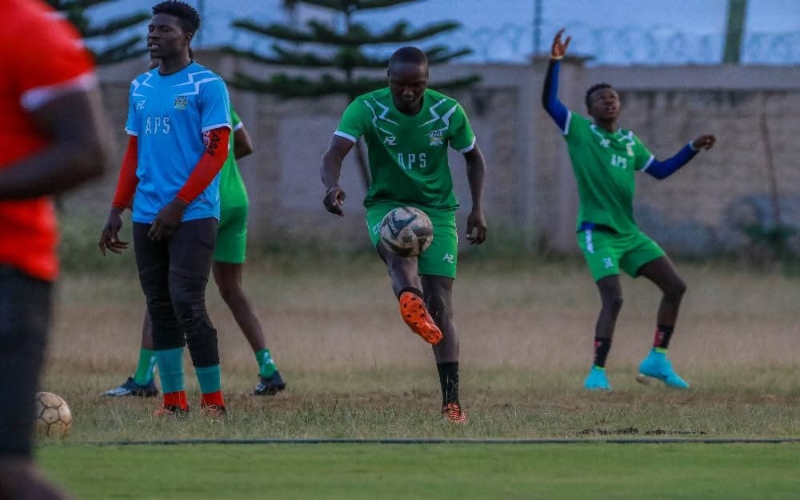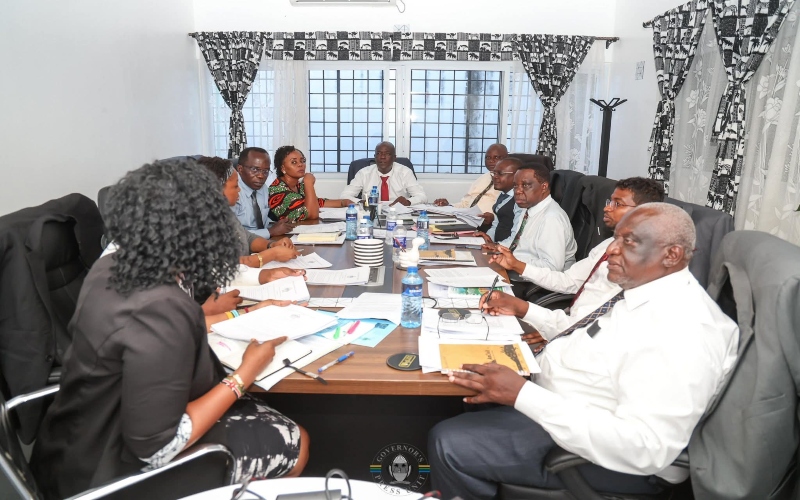How Kimathi Primary School uses karate to build discipline and character
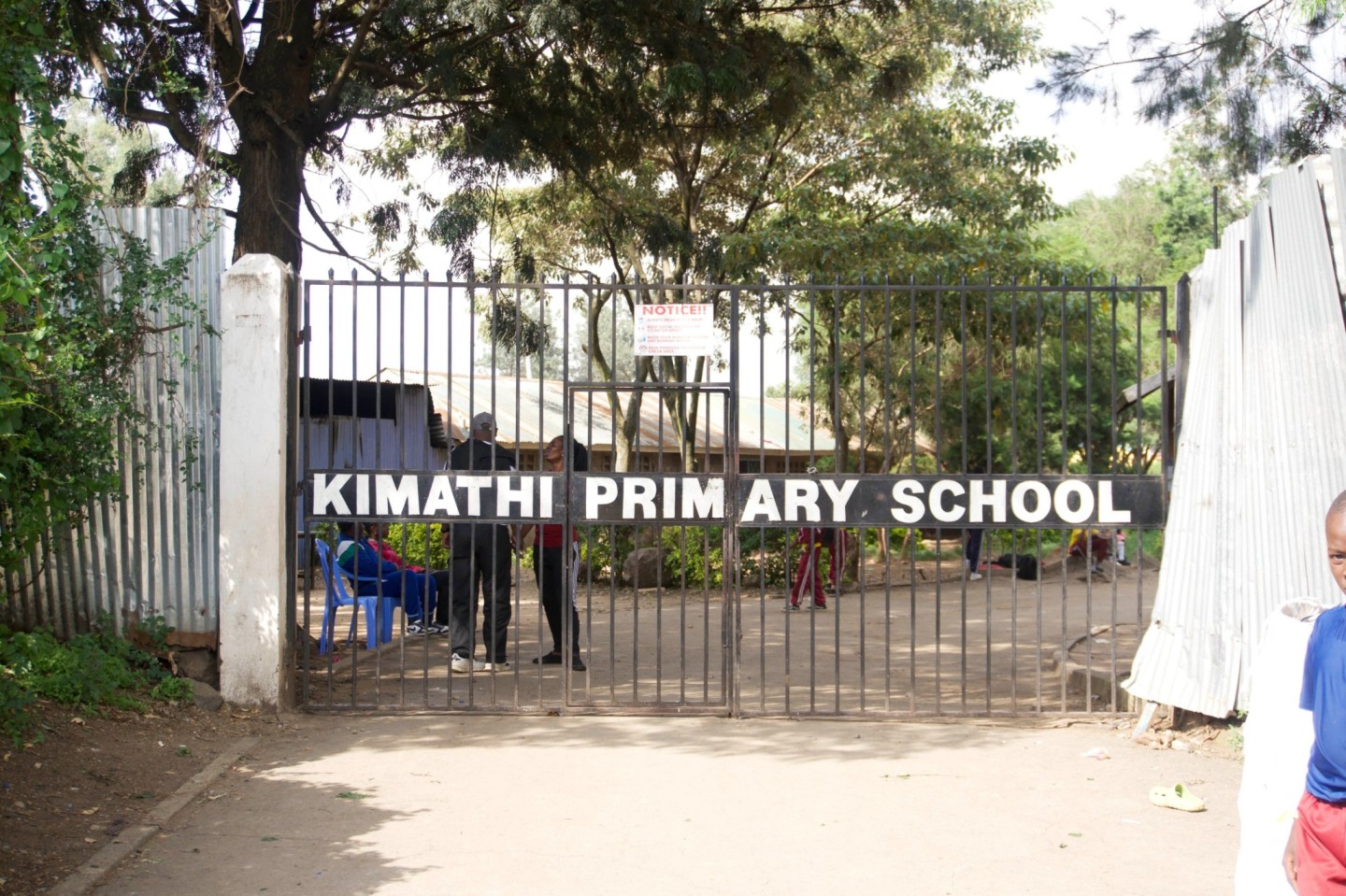
Whereas most of the sports practised in the school require the learners to colonise open spaces, one activity, karate classes, confines interested students to the four walls of a room dedicated for that purpose.
Kimathi Primary School is a public learning institution located within its eponymous estate in Kamukunji Constituency. It has over 1000 learners who attend classes across its pre-unit, primary, and junior secondary schools.
While academic activities underline the school’s primary focus, its administration has also placed a high value on extracurricular activities.
More To Read
- Explainer: How KJSEA 2025 results determine senior school pathways
- Government raises primary school capitation by 58 per cent to Sh2,238 per learner
- Education Ministry pledges early capitation release for smooth start to new term
- CBE curriculum spirit alive in Eastleigh as parents lead new wave of youth football development
- KCSE to start November 2 as Education Ministry unveils 2026 academic calendar
- TSC to send unemployed teachers overseas under new framework
The school’s schedule on Fridays provides solid evidence of the great value the school’s administration has attached to sports and the practice of interests not related to academics. Learning ends early for all the learners, at 11 am for pre-unit pupils and 2 pm, for primary school and junior secondary students, as the kids change into their games’ uniforms and use the remaining time to engage in games and club activities.
Whereas most of the sports practised in the school require the learners to colonise open spaces, one activity, karate classes, confines interested students to the four walls of a room dedicated for that purpose.
“Depending on the number of pupils who have shown interest on a particular day, we usually convert a large room in the pre-unit area or the staff room into a dojo. At times those two rooms are not available, and as such, we use the prayer room like we have planned today,” 31-year-old Hussein Ibrahim Nyarotso, a Kiswahili and Islamic Religious Education (IRE) teacher at the school, tells The Eastleigh Voice.
A dojo is a school or a room where people practice martial arts.
Hussein shares the history, the growth, and the impact of karate classes in the school.
At Kimathi Primary School, teachers serve as matrons or patrons of the respective sports they supervise. A teacher has to have a keen interest and adequate knowledge in the sport they supervise, and as such, it was natural that Hussein, who practised karate for a year when he was at Kaimosi Teachers’ Training College, became the karate patron when the sport was introduced in the school in 2022.
“We introduced karate classes in 2022 after Joab Okello, a karate instructor, approached the school administration with a proposal that was accepted. Our headteacher, Abubakar Tiemeri, used to be a boxer, so he understands the importance of martial arts in improving the discipline of learners and developing their character. Karate classes are only offered to learners in Grade 4 and above because there is a greater risk of injury for young learners. Since we started the programme, I have noticed an improvement in the discipline, focus, and fitness levels of the kids involved,” Hussein, who has been at the school since 2019, says.
Despite the students' strong enthusiasm for sports, Hussein says that the expansion of karate at the school has stalled due to various challenges.
“While the school fully supports the programme by providing a room and facilitating Okello to train the kids, we hope to improve the learners’ experience by procuring mats and other equipment that can help their training. Also, we are struggling to retain learners interested in karate. Most pupils come to this class to satisfy their curiosity before moving on to explore other interests in the following weeks,” Hussein says.
“Also, the fact that we are the only public school in the area providing karate classes means that our students cannot get opportunities to enter into competitions. The learners here enjoy outings, and one time when we announced there was a karate event at Mbotela, over 100 kids signed up for karate that week,” he adds.
Okello also agrees on the uniqueness of Kimathi Primary School offering karate classes.
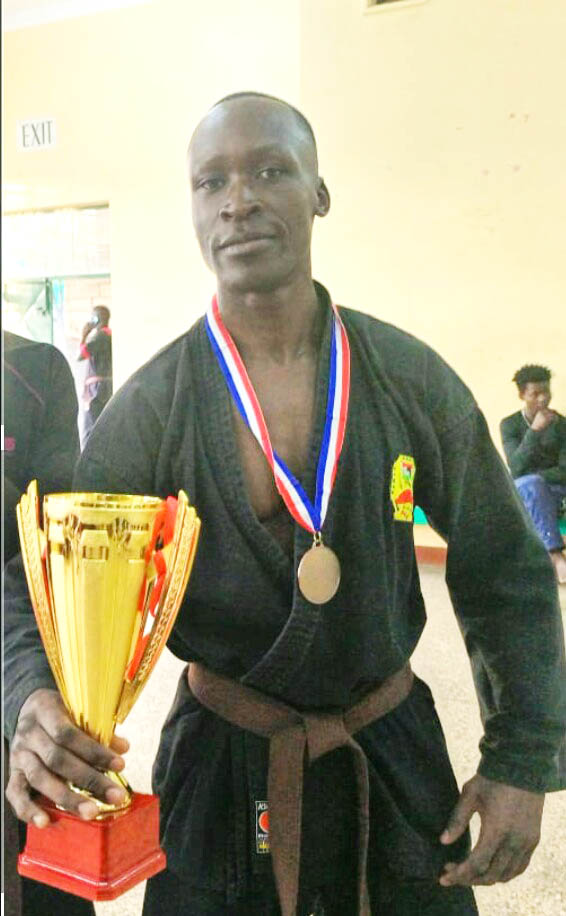 Joab Okello, a karate instructor at Kimathi Primary School in Kamukunji Constituency. (Photo: EV)
Joab Okello, a karate instructor at Kimathi Primary School in Kamukunji Constituency. (Photo: EV)Joab Okello, a karate instructor at Kimathi Primary School in Kamukunji Constituency. (Photo: EV)
“I am a karate instructor at so many schools in Nairobi, but Kimathi Primary School is currently the only public school I have on my rotation,” Okello tells The Eastleigh Voice.
Okello, 33, has practised karate for 15 years since taking it up as a Form One student in 2009. He has been a karate instructor since 2015.
While the lack of outings stifles the growth of karate at the school, Hussein also faces the difficulty of junior secondary students outgrowing the sport.
“When students transition to junior secondary school, they prefer not to mingle with primary school learners, and as such, they move on to explore other interests like football,” Hussein says.
Despite those challenges, Hussein is happy with the progress of a handful of students who have remained consistent in the sport, and he hopes to have them enter some competitions soon and even get graded.
Their instructor, Okello, is making an effort to ensure that the learners taking karate classes get the requisite exposure that will inspire them to maintain an interest in the sport.
“I plan to enter the active learners into a competition this term. I train the children in Kempo karate. Kempo karate is an all-encompassing form of karate that focuses on discipline and self-defence. I have a third-degree brown belt in karate,” Okello says before adding that he has a ranking exam in August that will allow him to wear the black belt, which denotes the highest level of proficiency in most forms of martial arts.
Okello also says that learners pay Sh50 for each session they sign up for. The school collects the money and pays him for what they have received.
With their sessions postponed to the following week, Hussein watched over the pupils as they kept themselves busy by practising what they had previously learned.
The postponement of their karate class does not stop them from having fun on their own; after all, the games master, Sylvester Ogola Panyako, insists on all children actively participating in a sport, either as a player or a spectator.
“Karate is just one of the many sports we have introduced in the school to diversify the interests of the learners. We have also introduced dance, music, and skating clubs, the most popular attractions in the school. Academic activities take most of the time during other days of the week, and Friday is almost exclusively for games,” Ogola, who has been at the school since 2013, says.
Ogola teaches Kiswahili, mathematics, social studies, and pre-technical (a new subject introduced in the CBC curriculum for JSS learners). He walks around the school, ensuring that students are engaged in a sport, and where need be, he assists them. Fridays are always busy for him, as other than dance, karate, music, and skating, learners in the school also engage in athletics, including basketball, football, netball, skipping ropes, swimming, tennis, and volleyball.
The competency-based curriculum has placed great emphasis on arts and sports as pathways to fulfilling careers, and it can only be hoped that the karate programme at Kimathi Primary School will culminate in stars in the sport for Kenya soon.
Top Stories Today
